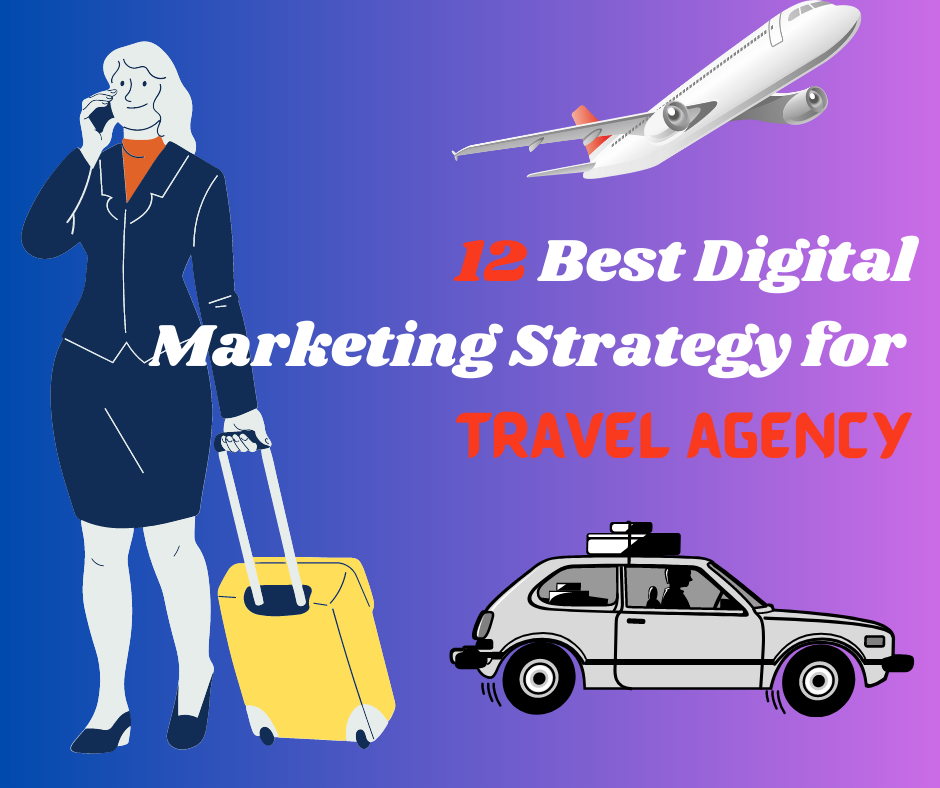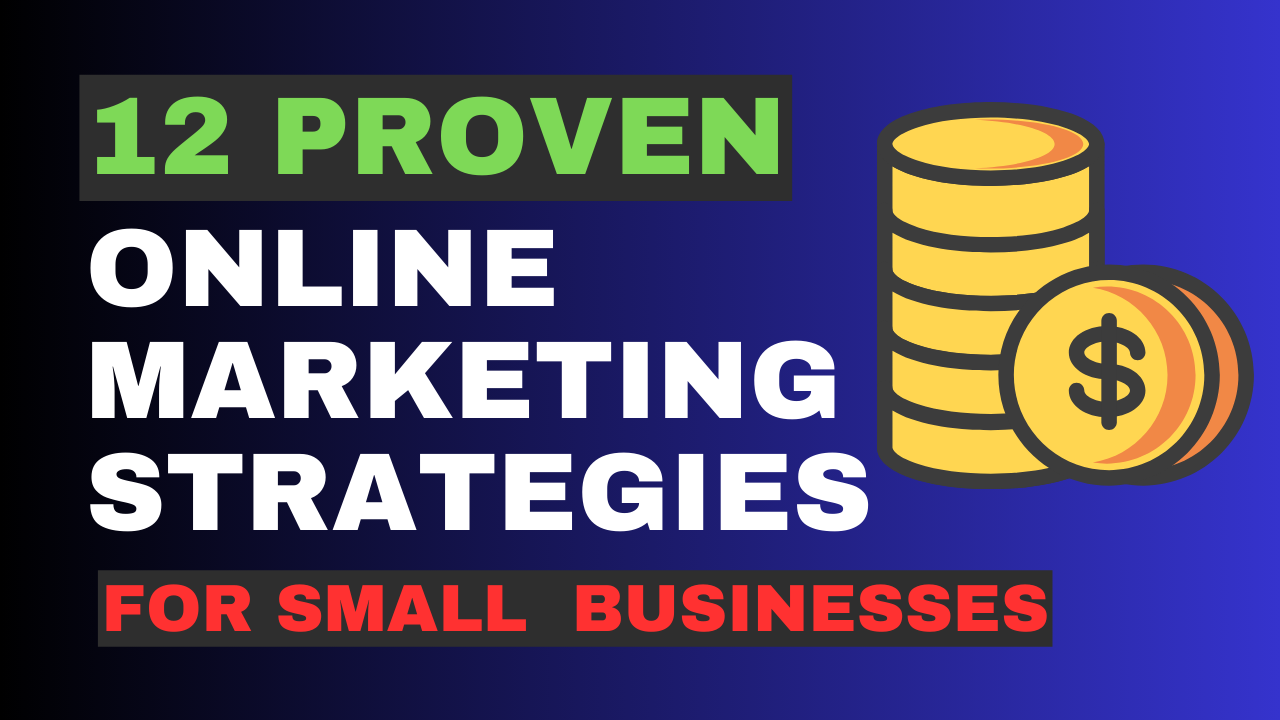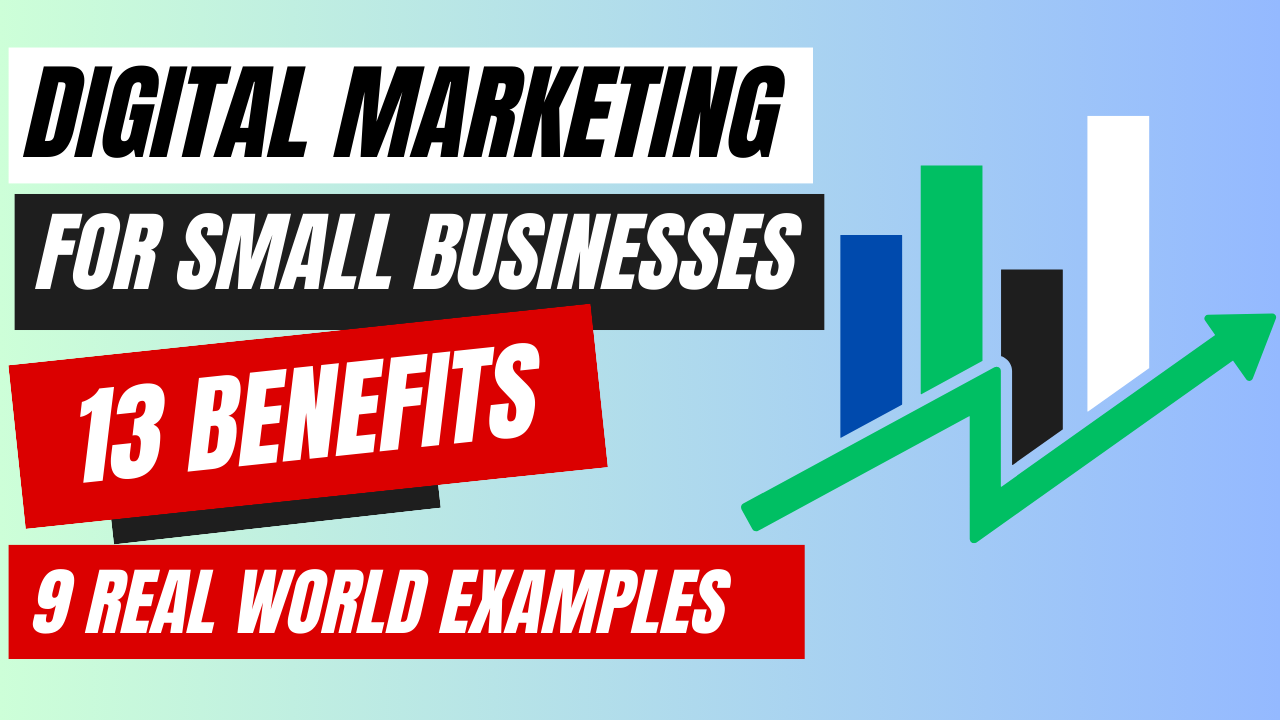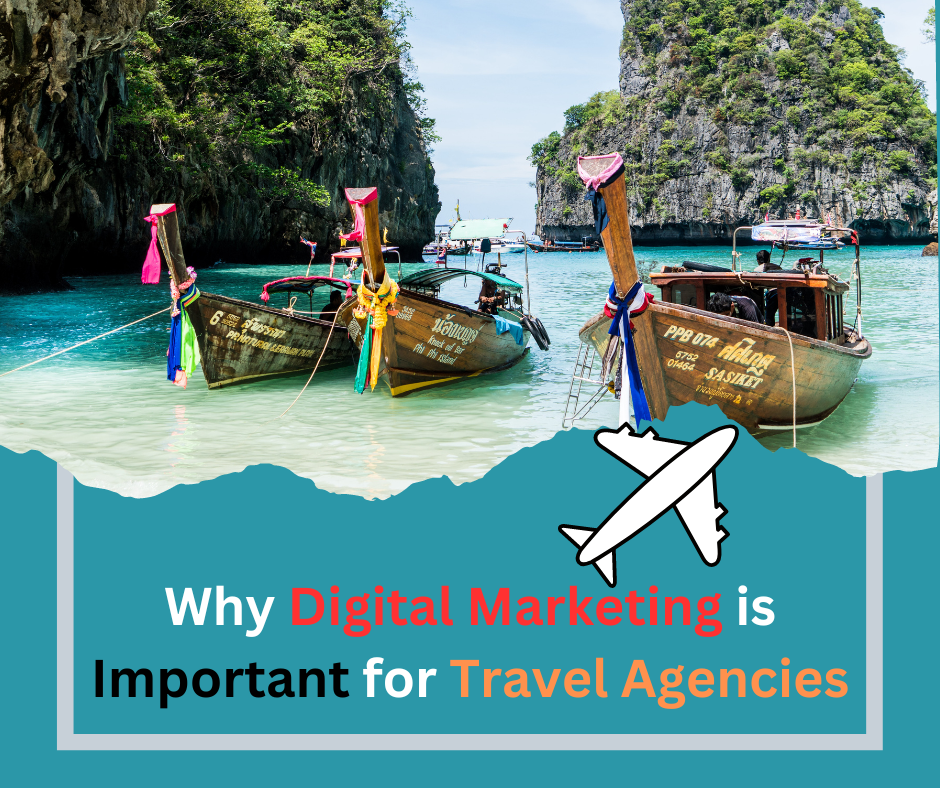Updated 21st October 2023
Digital Marketing for Travel Agency: In the ever-evolving world of technology, digital marketing has become an indispensable tool for businesses, including travel agencies.
With the increasing dominance of the internet and the growing number of travelers searching for their dream destinations online, traditional marketing methods alone are no longer sufficient to thrive in the travel industry.
This article explores the significance of digital marketing for travel agencies and the strategies they can employ to succeed in the digital landscape.
1. Understanding Digital Marketing
1.1 What is Digital Marketing
Digital marketing encompasses all online efforts aimed at promoting a brand, product, or service. It involves leveraging various digital channels to connect with potential customers, build brand awareness, and drive conversions.
For travel agencies, digital marketing offers unique opportunities to showcase their offerings, attract a broader audience, and establish themselves as industry leaders.
1.2 The Evolution of Marketing in the Digital Age
The advent of the internet has revolutionized marketing practices. Travel agencies, which once relied heavily on traditional advertising methods, now have access to a vast array of digital tools and platforms.
This evolution has opened new avenues for businesses to engage with travelers directly, understand their preferences, and tailor marketing efforts accordingly.
1.3 Key Components of Digital Marketing
Digital marketing encompasses various components, each playing a crucial role in enhancing a travel agency’s online presence.
These components include search engine optimization (SEO), pay-per-click (PPC) advertising, social media marketing, email marketing, content marketing, influencer marketing, and video marketing.
2. Digital Marketing Strategies for Travel Agencies
2.1 Creating an Engaging Website
A visually appealing and user-friendly website serves as the foundation of any successful digital marketing strategy. A travel agency’s website should showcase breathtaking travel destinations, provide comprehensive information about packages and services, and offer easy booking options.
2.2 Search Engine Optimization (SEO) for Travel Agencies
SEO is essential for improving a travel agency’s visibility in search engine results. By optimizing their website and content with relevant keywords, meta tags, and backlinks, travel agencies can rank higher on search engine result pages (SERPs) and attract organic traffic.
2.3 Pay-Per-Click (PPC) Advertising
PPC advertising allows travel agencies to place targeted ads on search engines and social media platforms. With PPC, agencies only pay when users click on their ads, making it a cost-effective method to drive traffic and conversions.
2.4 Social Media Marketing for Travel Agencies
Social media platforms provide an excellent avenue for travel agencies to engage with potential customers, share travel experiences, and build a community of passionate travelers. A strong social media presence can significantly boost brand awareness and customer loyalty.
2.5 Email Marketing and Newsletter Campaigns
Email marketing remains an effective way for travel agencies to stay connected with their existing customers and nurture potential leads. Sending personalized offers, travel tips, and exclusive deals through newsletters can drive repeat bookings and referrals.
2.6 Content Marketing for Travel Agencies
Compelling and informative content, such as blog posts, travel guides, and destination reviews, can establish a travel agency as a trusted authority in the industry. Engaging content not only attracts readers but also encourages social sharing and link building.
2.7 Influencer Marketing in the Travel Industry
Collaborating with travel influencers and bloggers can expose a travel agency’s offerings to a broader audience. Influencers can create visually appealing content that inspires wanderlust and drives potential customers to the agency’s website.
2.8 Utilizing Video Marketing
Video marketing is gaining momentum in the travel industry, with travelers seeking immersive experiences before making their decisions. Travel agencies can create captivating videos showcasing destinations, experiences, and testimonials to entice travelers.
Digital marketing is essential for travel agencies in today’s digital age. Here are some of the most effective digital marketing strategies for travel agencies:
- SEO (Search Engine Optimization). SEO is the process of optimizing your website so that it ranks higher in search engine results pages (SERPs). This is important for travel agencies because most people start their travel planning online by searching for information on Google or other search engines.
- Social media marketing. Social media platforms like Facebook, Twitter, and Instagram are great ways to connect with potential customers and promote your travel agency. You can share photos and videos of your destinations, run social media contests, and engage with customers by responding to their comments and messages.
- Content marketing. Creating valuable content is a great way to attract and engage potential customers. This could include blog posts, articles, infographics, or even videos. Your content should be informative and helpful, and it should be tailored to your target audience.
- Email marketing. Email marketing is a great way to stay in touch with your customers and promote your travel agency’s latest deals and offers. You can also use email marketing to send out newsletters and travel tips.
- Paid advertising. Paid advertising can be a great way to reach a wider audience and drive traffic to your website. You can use platforms like Google AdWords or Facebook Ads to target your ads to people who are interested in travel.
In addition to these strategies, there are a number of other digital marketing tactics that can be effective for travel agencies. These include:
- Influencer marketing. Partnering with influencers who have a large following of travel enthusiasts can be a great way to promote your travel agency.
- Reviews and testimonials. Positive reviews and testimonials from past customers can be a powerful way to build trust and credibility with potential customers.
- Live streaming. Live streaming is a great way to give potential customers a behind-the-scenes look at your travel agency and the destinations you offer.
By using a combination of these digital marketing strategies, you can reach a wider audience, generate more leads, and increase bookings for your travel agency.
3. 12 Best Digital Marketing Strategies for Travel Agencies

Here are 12 best digital marketing strategies for travel agencies:
- Create a strong website. Your website is your online storefront, so it’s important to make sure it’s well-designed, informative, and easy to use. Your website should include clear calls to action, such as “Book Now” or “Contact Us.”
- Optimize your website for search engines. SEO (search engine optimization) is the process of making your website more visible in search engine results pages (SERPs). This will help people find your website when they’re searching for travel-related information.
- Use social media to connect with potential customers. Social media platforms like Facebook, Twitter, and Instagram are a great way to connect with potential customers and promote your travel agency. Share photos and videos of your destinations, run social media contests, and engage with customers by responding to their comments and messages.
- Create valuable content. Content marketing is a great way to attract and engage potential customers. This could include blog posts, articles, infographics, or even videos. Your content should be informative and helpful, and it should be tailored to your target audience.
- Use email marketing to stay in touch with your customers. Email marketing is a great way to stay in touch with your customers and promote your travel agency’s latest deals and offers. You can also use email marketing to send out newsletters and travel tips.
- Run paid advertising campaigns. Paid advertising can be a great way to reach a wider audience and drive traffic to your website. You can use platforms like Google AdWords or Facebook Ads to target your ads to people who are interested in travel.
- Partner with influencers. Partnering with influencers who have a large following of travel enthusiasts can be a great way to promote your travel agency.
- Get positive reviews and testimonials. Positive reviews and testimonials from past customers can be a powerful way to build trust and credibility with potential customers.
- Use live streaming. Live streaming is a great way to give potential customers a behind-the-scenes look at your travel agency and the destinations you offer.
- Host webinars. Webinars are a great way to educate potential customers about your travel agency and the destinations you offer.
- Create a travel blog. A travel blog is a great way to share your travel experiences and insights with potential customers. You can also use your blog to promote your travel agency’s services.
- Attend travel industry events. Attending travel industry events is a great way to meet potential customers and partners, learn about new trends, and stay up-to-date on the latest industry news.
By following these digital marketing strategies, you can reach a wider audience, generate more leads, and increase bookings for your travel agency.
Here are some additional tips for digital marketing for travel agencies:
- Track your results. It’s important to track the results of your digital marketing efforts so that you can see what’s working and what’s not. This will help you optimize your campaigns and get the most out of your investment.
- Be consistent. The key to successful digital marketing is consistency. You need to be consistent with your content creation, social media posting, and email marketing.
- Be patient. Digital marketing takes time to see results. Don’t expect to see a huge increase in traffic or bookings overnight. Just keep at it, and you’ll eventually see the results you’re looking for.
4. Travel Agency Marketing Plan Example
Here is an example of a travel agency marketing plan:
Executive Summary
This marketing plan outlines the strategies that will be used to promote WhiteSandTrip in the coming year. The plan will focus on digital marketing, including SEO, social media, content marketing, and email marketing. The goal of the plan is to increase website traffic, generate leads, and boost bookings.
Situational Analysis
WhiteSandTrip is a small, independent travel agency located in Kolkata, West Bengal, India. The agency specializes in planning custom trips for clients. The agency’s target market is high-income individuals and families who are interested in luxury travel.
The travel industry is a competitive industry, but WhiteSandTrip has a number of strengths that will help it succeed. The agency has a strong reputation for customer service, and it offers a wide range of travel services. The agency also has a strong online presence, with a well-designed website and a large following on social media.
Marketing Objectives
The marketing objectives for WhiteSandTrip are to:
- Increase website traffic by 20%
- Generate 100 new leads per month
- Increase bookings by 15%
Marketing Strategies
The following marketing strategies will be used to achieve the marketing objectives:
- SEO: The agency will focus on optimizing its website for search engines. This will help the agency’s website rank higher in search results, which will lead to more traffic.
- Social media: The agency will use social media to connect with potential customers and promote its services. The agency will post photos and videos of its destinations, run social media contests, and engage with customers by responding to their comments and messages.
- Content marketing: The agency will create valuable content, such as blog posts, articles, and infographics. This content will be used to educate potential customers about the agency’s services and the destinations it offers.
- Email marketing: The agency will use email marketing to stay in touch with its customers and promote its latest deals and offers. The agency will also use email marketing to send out newsletters and travel tips.
Budget
The marketing budget for WhiteSandTrip is $5,000. This budget will be used to cover the costs of SEO, social media, content marketing, and email marketing.
Evaluation
The success of the marketing plan will be evaluated based on the following metrics:
- Website traffic
- Lead generation
- Bookings
The marketing plan will be reviewed on a monthly basis to ensure that it is on track to achieve its objectives.
Conclusion
This marketing plan outlines the strategies that will be used to promote WhiteSandTrip in the coming year. The plan will focus on digital marketing, including SEO, social media, content marketing, and email marketing. The goal of the plan is to increase website traffic, generate leads, and boost bookings.
5. The Benefits of Digital Marketing for Travel Agencies
5.1 Increased Brand Visibility and Awareness
Digital marketing enables travel agencies to reach a global audience, increasing brand visibility and awareness beyond their physical locations. An enhanced online presence can significantly impact a travel agency’s credibility and reputation.
5.2 Reaching a Targeted Audience
Through digital marketing strategies, travel agencies can target specific demographics, interests, and online behaviors. This targeted approach ensures that promotional efforts reach individuals who are more likely to be interested in the agency’s services.
5.3 Driving Website Traffic and Lead Generation
Digital marketing efforts, such as SEO, PPC, and social media marketing, can drive a steady stream of traffic to a travel agency’s website. More traffic translates to increased lead generation and potential conversions.
5.4 Building Customer Trust and Loyalty
Engaging and transparent digital marketing campaigns can build trust among potential customers. When travelers perceive a travel agency as reliable and customer-oriented, they are more likely to choose their services over competitors’.
5.5 Measurable Results and Data Analysis
Digital marketing offers valuable data and insights that help travel agencies measure the effectiveness of their campaigns. Analyzing data allows agencies to make data-driven decisions and refine their strategies for better results.
6. Overcoming Challenges in Digital Marketing for Travel Agencies
6.1 Competition in the Online Travel Market
The online travel industry is highly competitive, with numerous agencies vying for travelers’ attention. To stand out, travel agencies must differentiate themselves by offering unique experiences and exceptional customer service.
6.2 Managing Online Reputation
In the digital era, a single negative review can tarnish a travel agency’s reputation. It is crucial for agencies to actively manage their online reputation, address customer concerns promptly, and maintain a positive online presence.
6.3 Dealing with Seasonal Fluctuations
The travel industry experiences seasonal fluctuations, with peak travel periods followed by quieter periods. Travel agencies must plan their digital marketing efforts strategically to maximize bookings throughout the year.
6.4 Ensuring Data Privacy and Security
As travel agencies collect customer data for marketing purposes, ensuring data privacy and security becomes paramount. Complying with data protection regulations and safeguarding customer information fosters trust and confidence among travelers.
7. The Future of Digital Marketing in the Travel Industry
7.1 Emerging Technologies and Trends
The future of digital marketing for travel agencies is closely linked to technological advancements. Artificial intelligence, chatbots, and virtual reality are expected to play significant roles in enhancing the travel booking experience.
7.2 Personalization in Travel Marketing
Personalized marketing approaches, based on customer preferences and behavior, will continue to gain prominence. Tailoring offers and recommendations can enhance customer satisfaction and increase conversion rates.
7.3 Integrating Virtual and Augmented Reality
Virtual and augmented reality technologies will revolutionize the way travelers explore destinations before booking. Travel agencies can leverage these technologies to offer virtual tours and immersive experiences.
7.4 Sustainable and Eco-Friendly Travel Marketing
As eco-consciousness grows among travelers, marketing campaigns promoting sustainable and responsible travel will become more prevalent. Travel agencies that prioritize environmental concerns will appeal to a socially responsible audience.
Are you a travel agency seeking to dominate the digital landscape? Mercatodigi, a leading digital marketing company, specializes in crafting tailored strategies to boost your brand visibility, engage your target audience, and drive bookings.
Partner with us to unleash the full potential of digital marketing for your travel agency and experience unprecedented growth. Let’s embark on a journey of success together!
8. Conclusion
In conclusion, digital marketing is no longer an option but a necessity for travel agencies looking to thrive in the modern landscape. By adopting a comprehensive digital marketing strategy, travel agencies can increase their brand visibility, connect with a targeted audience, and drive conversions.
Overcoming challenges such as competition and seasonal fluctuations is essential for sustained success. Embracing emerging technologies and trends will further propel travel agencies towards a prosperous future.
9. FAQs
Is digital marketing suitable for all travel agencies, regardless of their size?
Yes, digital marketing is beneficial for travel agencies of all sizes. It provides opportunities for both established agencies and startups to reach a global audience and compete in the online travel market.
How long does it take to see results from digital marketing efforts?
The timeframe to see significant results from digital marketing efforts can vary based on several factors, including the chosen strategies, the agency’s online presence, and the level of competition. Generally, agencies may start noticing improvements within a few months, while long-term success may take up to a year or more.
What are the most cost-effective digital marketing strategies for travel agencies?
Email marketing, content marketing, and social media marketing are among the most cost-effective strategies for travel agencies. These methods allow agencies to engage with their audience without incurring significant advertising costs.
How can travel agencies measure the success of their digital marketing campaigns?
Travel agencies can measure the success of their digital marketing campaigns by tracking key performance indicators (KPIs), such as website traffic, conversion rates, click-through rates, and return on investment (ROI). Analyzing these metrics provides valuable insights into the effectiveness of marketing efforts.
How can a travel agency build a strong social media presence?
To build a strong social media presence, a travel agency should consistently create engaging content, interact with followers, and share captivating visuals and videos. Collaborating with influencers and leveraging user-generated content can also help in expanding reach and engagement.





